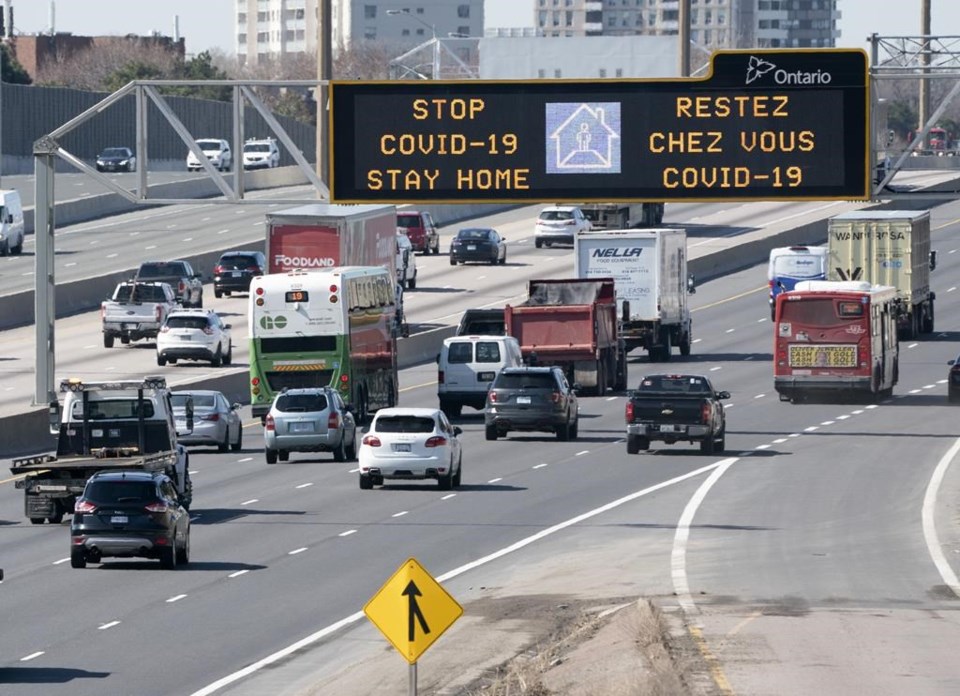TORONTO — Average auto insurance premiums in the province increased by 14 per cent between 2017 and 2021, to $1,642, the province's auditor general said Wednesday.
Bonnie Lysyk said in her annual report that Ontario has the highest private passenger auto insurance premiums in Canada, despite having one of the lowest rates of car crash injuries.
"Despite several reports providing recommendations over the past decade to improve Ontario’s private passenger automobile insurance framework and lower premium costs, the (regulator) and the Ministry of Finance have not sufficiently improved the framework to provide less costly private passenger automobile insurance to Ontarians," Lysyk wrote.
Lysyk said, for example, Ontario could follow British Columbia and Saskatchewan's lead and implement a mandatory certification regime for vehicle repair businesses to protect against fraud.
A government-commissioned report in 2017 called Ontario's auto insurance system "one of the least effective insurance systems in Canada," and recommended several changes, including adopting a "care not cash" approach, exploring better ways to care for people who are catastrophically injured, and making lawyers' contingency fees more transparent.
Little action has been taken so far on the report's recommendations, Lysyk wrote.
Ontario’s auto insurance system allows injured people to sue an at-fault driver, who would rely on their insurance company to pay, and the tort aspect raises costs for the system as a whole, Lysyk wrote.Â
FSRA estimates that about 30 to 35 per cent of settlements paid in personal injury disputes between insurance companies and claimants are used to pay for professional and legal fees, such as contingency fees, instead of benefiting injured parties, the auditor's report said.
The Tories promised in their 2019 budget to lower auto insurance costs, reform the medical assessments process and make the market more competitive, but Lysyk wrote that partly due to the pandemic, there has been little progress.
The former Liberal government commissioned the 2017 report at a time when it was under fire for promising, but failing, to significantly decrease auto insurance rates. The Liberals had promised in 2013 to lower rates by an average of 15 per cent by 2015, but then-premier Kathleen Wynne later admitted it was a "stretch goal."
By the first quarter of 2018, not long before the Liberals were roundly defeated in the election by the Progressive Conservatives, the average rate decrease was about 3.3 per cent since 2013.
Lysyk also found that auto insurance rates vary so widely in the province that the exact same person driving the same car would pay $1,200 a year in London, Ont., but $3,350 per year in Brampton, Ont.
The government directed the Financial Services Regulatory Authority of Ontario to start reviewing that framework earlier this year. The auditor said the preliminary review is expected to be done in March.
An internal FSRA analysis has shown that removing location as a variable could see Greater Toronto Area residents' premiums reduced by an average of $543, but drivers in the Ottawa area could pay $503 more, on average.
FSRA has asked the Ministry of Finance for more powers in regulating auto insurance, but it told the auditor the ministry has raised "general concerns" about the proposals.
This report by The Canadian Press was first published Nov. 30, 2022.
Allison Jones, The Canadian Press


